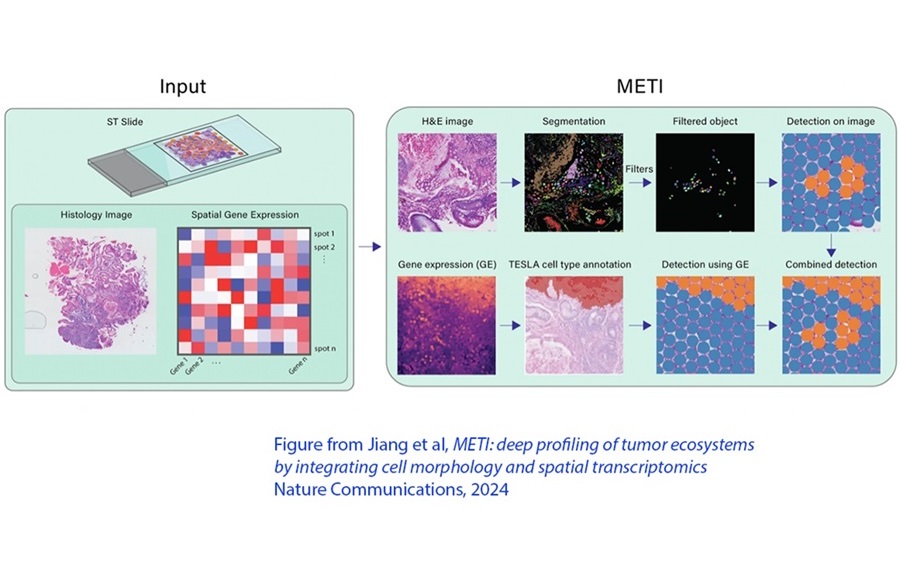Software Tool to Advance Cancer Pathology by Providing Diagnostic Insights from Tissue Biopsies
Posted on 02 Sep 2024
A groundbreaking software tool is set to advance cancer pathology by delivering diagnostic insights from tissue biopsies.
The tool, called METI (Morphology-Enhanced Spatial Transcriptome Analysis Integrator), was developed by researchers at MD Anderson Cancer Center (Houston, TX, USA) and Emory University (Atlanta, GA, USA). METI utilizes an unsupervised machine learning model that leverages existing domain knowledge from cancer genomics research. It integrates data by examining both the appearance and arrangement of cells (histology) and their genetic activity. This approach enables the identification of cancerous and non-cancerous cells, including immune cells that are present within tumors, which are crucial for accurate diagnoses.

The tool's effectiveness was assessed using biopsy samples from lung and bladder cancers provided by MD Anderson and gastric cancers from Zhejiang Cancer Hospital. The capabilities and performance of METI are detailed in a publication in Nature Communications. The software, which can analyze various types of cancer due to its reliance on universal gene expression and morphology markers, is accessible through GitHub, complete with a user-friendly interface for data visualization.
“METI's key contribution is its ability to accurately identify tumor cells and other components of the tumor microenvironment, by integrating both molecular and morphological information,” said co-senior author Jian Hu, PhD, assistant professor of human genetics at Emory School of Medicine and director of the AI in Genomics lab.
Related Links:
MD Anderson Cancer Center
Emory University













